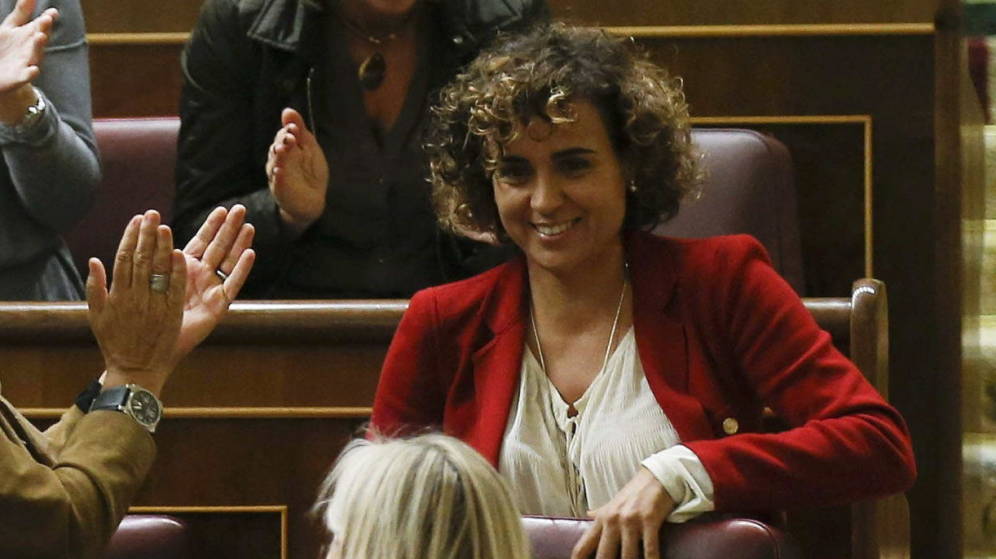During her first appearance before the Equality Committee of the Upper House of Parliament, the Minister for Health, Social Services and Equality, Dolors Montserrat, said that “we cannot as a society allow even just one more victim”. Furthermore, she described a pact between all political forces and other stakeholders involved in the fight against this blight on society as a “matter of State”. “Gender-based violence is the cruelest expression of inequality between men and women, and male chauvinism”, she added.
“Let’s all start pulling in the same direction”
Dolors Montserrat stressed that “the solution to the problem requires a government pact”, given that the most effective policies “always stem from consensus; the more proposals we make, the better the solutions we can offer. Let’s spare no effort and all start pulling in the same direction”.
The minister recalled that the Upper House of Parliament approved the creation of a paper “to study and assess” the issues involved in gender-based violence last year and that, while that paper is being drafted, work is also being carried out by the subcommittee set up in the Lower House of Parliament and her ministerial department, where protection and prevention policies will continue to be developed.
The 2nd National Strategy for the Eradication of Violence against Women 2017-2020 will be presented within the framework of this pact and will include improvements in the protection of women, such as a simplified reporting process and a better tagging system. Furthermore, increased training must be provided to healthcare professionals, legal system professionals and the security forces.
For the first time, the strategy will include a Prevention and Awareness Plan aimed at increased monitoring of the new forms of violence against women, especially in digital environments such as the social media networks. The minister expressed her concern that “male chauvinistic behaviour models are being seen among the youngest members of our population”, meaning that this plan will place special emphasis on this section of society.
Plan for supporting women with disabilities
The minister also mentioned the situation of women who become victims of gender-based violence and who also have some form of disability. In order to prevent such cases, her ministerial department will promote a plan to consider their needs and improve their social inclusion in order for them to receive increased support, proper socio-healthcare attention and to provide them with access to employment. All these efforts will be undertaken in collaboration with entities in the community sector.
Furthermore, work will continue in the fight against people trafficking for sexual exploitation purposes under the framework of the Plan against People Trafficking 2015-2018 in order to work on their socio-employment insertion, among other things. Dolors Montserrat underlined the importance of providing special protection to the children who suffer in person or because they are the children of a victim of people trafficking.
The minister stressed that equality between men and women will also be a priority. With that in mind, a new Strategic Plan for Equal Opportunities will be prepared. It will include specific measures to reduce horizontal segregation and the vertical gap, and to improve the chances of achieving balance between work and personal life.
Furthermore, Dolors Montserrat recalled that her ministerial department will promote a pilot scheme this year with various companies to assess results from the anonymous CV – i.e. one excluding such details as name, age and gender – that seeks to prevent discriminatory attitudes in recruitment processes. Efforts will also be made to foster the leading role of women in the digital economy, for which additional support will be given to the Action Plan for Equal Opportunities between Men and Women in the Information Society.
In this regard, the minister expressed her aspiration insofar as that, “if women account for 51% of the population, we should also have the decision and representation power of that 51%”.
In terms of work-life balance, the minister underlined its importance for women especially but in general “for families, parents and children”. She placed an emphasis on SMEs, where it is far more difficult to implement equality policies. “It is our responsibility to help them, which is why my ministerial department has supported over 500 small- and medium-sized enterprises to design their equality plan”, she said.
The minister also referred to those women who live in the rural environment, with whom work was done during the last legislature on preparing the Rural Women Empowerment Plan 2015-2018. This is the framework in which the “Rural Women Challenge” will be launched to help these women set up their own business.
Fight against any kind of discrimination
“We are going to keep working to improve comprehensive protection against any kind of discrimination”, stressed the minister, who recalled that equality is not only a right but a value. To do so, the Government of Spain will continue to focus its efforts on education in all areas. In this regard, she referred to the LGTBI community because, even though progress has been made in Spain on preventing discrimination on grounds of sexual orientation, “there is still more work to be done”.
Dolors Montserrat took the opportunity provided by her appearance to ask all the political forces to engage in dialogue with a view to reaching agreements that will be positive for all Spaniards.





